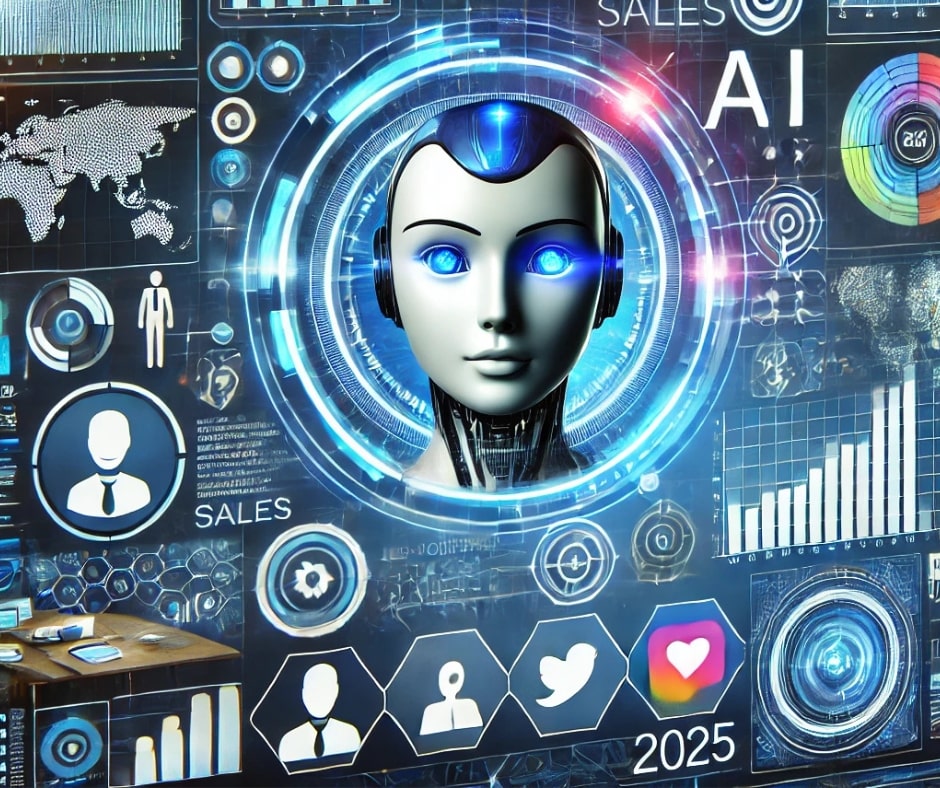The business landscape is constantly evolving, and sales strategies must adapt to meet changing consumer expectations. The future of sales trends in 2025 will be shaped by new technologies, customer behaviors, and economic shifts. Businesses that embrace these trends will gain a competitive edge, while those that resist change may struggle to keep up.
In this in-depth look at the future of sales trends, I will break down the key shifts that will redefine how businesses sell, engage, and convert prospects into loyal customers. From artificial intelligence (AI) to hyper-personalization, here’s what you need to watch.
1. AI-Powered Sales Assistants Will Dominate
Artificial intelligence (AI) is revolutionizing sales by automating repetitive tasks, analyzing data, and predicting customer behavior. In 2025, AI-driven sales assistants will become even more sophisticated. These digital tools will help businesses manage leads, personalize interactions, and streamline follow-ups.
For example, AI chatbots will engage with prospects, answer questions, and guide them through the sales funnel without human intervention. Additionally, AI will provide predictive analytics, helping sales teams focus on high-converting leads. The businesses that invest in AI sales tools will gain efficiency, improve customer experiences, and close deals faster.
2. Hyper-Personalization Will Be the Standard
Consumers now expect personalized experiences at every touchpoint. Generic sales pitches are no longer effective. In 2025, hyper-personalization will be crucial for winning customers. This means using data-driven insights to tailor messages, offers, and interactions based on individual preferences.
For instance, sales teams will leverage customer data to send highly relevant product recommendations, customized emails, and dynamic pricing offers. Personalization will extend beyond email marketing to websites, chatbots, and even voice assistants. Companies that master hyper-personalization will increase engagement, improve conversion rates, and build lasting relationships.
3. Social Selling Will Continue to Grow
Social media platforms have transformed into powerful sales channels. In 2025, social selling will become an even bigger part of successful sales strategies. Platforms like LinkedIn, Instagram, and TikTok will drive lead generation, customer engagement, and brand loyalty.
Sales teams will need to focus on building authentic relationships on social media rather than pushing hard sales tactics. Sharing valuable content, engaging in conversations, and leveraging influencer collaborations will be key strategies. Additionally, live shopping and interactive social commerce features will play a bigger role in the buyer’s journey.
4. Voice Search and Conversational AI Will Shape Sales Interactions
With the rise of voice assistants like Alexa, Siri, and Google Assistant, voice search is changing how consumers find and interact with businesses. In 2025, optimizing sales strategies for voice search and conversational AI will be essential.
Businesses will need to ensure that their sales content is voice-search-friendly. Short, natural language queries will drive the way customers discover products and services. Companies that integrate voice-activated experiences into their sales processes will stand out and attract more leads.
5. Subscription-Based Sales Models Will Expand
The shift from one-time purchases to subscription-based sales is growing. In 2025, more businesses will adopt this model to increase recurring revenue and enhance customer retention. From software-as-a-service (SaaS) to product subscriptions, this approach allows companies to build long-term relationships with customers.
Sales teams will need to focus on value-driven selling, ensuring that customers see continuous benefits in their subscriptions. Providing exclusive content, priority support, and personalized experiences will be key to maintaining high retention rates.
6. Sales and Marketing Alignment Will Be More Critical Than Ever
In the modern sales landscape, marketing and sales must work together seamlessly. In 2025, businesses that align these two functions will drive better lead generation, conversion, and customer retention.
Marketing will focus on attracting and nurturing leads, while sales teams will refine the process of closing deals. Sharing data, automating workflows, and using CRM tools will ensure a smooth transition from marketing-qualified leads to sales-qualified opportunities.
Final Thoughts
The future of sales trends in 2025 will be shaped by AI, hyper-personalization, social selling, voice search, and seamless marketing-sales alignment. Businesses that stay ahead of these trends will build stronger relationships, close more deals, and achieve long-term success.
Now is the time to embrace these changes and future-proof your sales strategy. Are you ready for the next evolution in sales?













